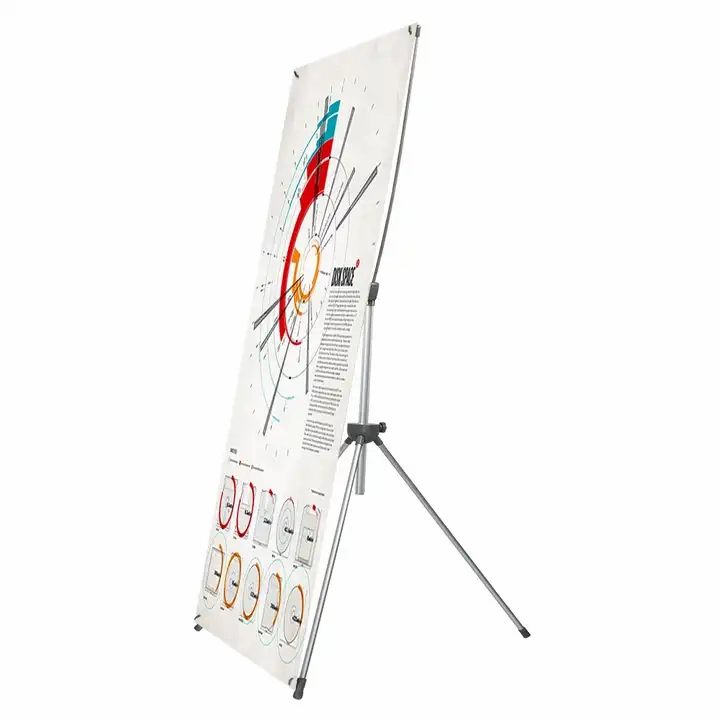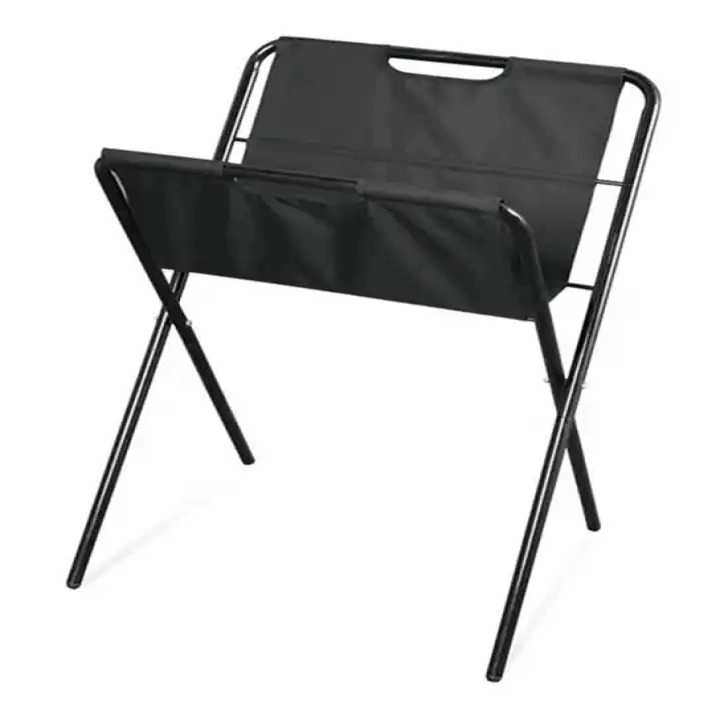Content Menu
● Cardboard Display Stands
>> Benefits of Cardboard Display Stands
>> Ideal Uses
>> Additional Considerations
● Acrylic Display Stands
>> Benefits of Acrylic Display Stands
>> Ideal Uses
>> Additional Considerations
● Metal Display Stands
>> Benefits of Metal Display Stands
>> Ideal Uses
>> Additional Considerations
● Wood Display Stands
>> Benefits of Wood Display Stands
>> Ideal Uses
>> Additional Considerations
● Plastic Display Stands
>> Benefits of Plastic Display Stands
>> Ideal Uses
>> Additional Considerations
● How to Choose the Right Display Stand Material
● Conclusion
● FAQ
>> 1. What is the most cost-effective material for display stands?
>> 2. Which material is best suited for displaying heavy products?
>> 3. How can I make my display stands more environmentally sustainable?
>> 4. Are acrylic display stands suitable for outdoor use?
>> 5. Can display stands be fully customized to fit my brand?
In the dynamic world of retail and exhibitions, display stands are more than just functional fixtures—they are powerful tools that influence customer engagement, brand perception, and ultimately sales. Choosing the right material for your display stands can make a significant difference in how your products are showcased and how your brand is perceived. As a company specializing in custom packaging and printing solutions, including display stands, understanding the characteristics and advantages of various materials allows you to create impactful, tailored displays for your clients.
This article delves into the top five materials used for display stands, exploring their unique benefits, typical applications, and how to select the best option based on your specific needs. Whether you aim for cost-efficiency, durability, aesthetic appeal, or sustainability, this guide will help you navigate the choices and maximize the effectiveness of your display stands.

Cardboard Display Stands
Cardboard is one of the most widely used materials for display stands, especially for short-term campaigns and promotional events. Its affordability and versatility make it a go-to choice for many brands.
Benefits of Cardboard Display Stands
- Affordability: Cardboard is inexpensive to produce, making it ideal for businesses looking to deploy large quantities of display stands without excessive costs.
- Lightweight and Portable: These stands are easy to transport and assemble, which is especially useful for pop-up events, trade shows, and temporary retail setups.
- Highly Customizable: Cardboard can be printed with vibrant colors, intricate designs, and brand messaging, allowing for eye-catching presentations that align with marketing strategies.
- Eco-Friendly: Made from renewable resources, cardboard is recyclable and biodegradable, appealing to environmentally conscious brands and consumers.
- Fast Production: Quick turnaround times enable brands to respond rapidly to market trends or seasonal promotions.
Ideal Uses
Cardboard display stands excel in retail point-of-sale areas, supermarkets, and event spaces where temporary yet impactful displays are needed. They are perfect for showcasing lightweight products such as cosmetics, snacks, and promotional giveaways.
Additional Considerations
While cardboard is excellent for short-term use, it is less durable when exposed to moisture or heavy handling. Reinforcements and coatings can improve its strength and lifespan, but for long-term or heavy-duty use, other materials may be more suitable.
Acrylic Display Stands
Acrylic display stands are synonymous with elegance and clarity. Their glass-like transparency and sturdy nature make them a preferred choice for premium product displays.
Benefits of Acrylic Display Stands
- Crystal Clear Presentation: Acrylic's transparency allows products to be the star of the display, providing unobstructed views that enhance product appeal.
- Durability: Unlike glass, acrylic is shatter-resistant and can withstand frequent handling without cracking or breaking.
- Design Flexibility: Acrylic can be molded into a variety of shapes and sizes, including curved or multi-tiered stands, accommodating diverse product types.
- Low Maintenance: Acrylic surfaces are easy to clean and maintain, retaining their shine and clarity over time.
- Lightweight: Despite its strength, acrylic is lighter than glass, facilitating easier setup and repositioning.
Ideal Uses
Acrylic display stands are perfect for high-end retail environments such as jewelry stores, electronics outlets, and cosmetic counters. They are also widely used for brochure holders and exhibition showcases where a sleek, modern look is desired.
Additional Considerations
Acrylic can be sensitive to scratches, so it's important to handle and clean it with care. Additionally, prolonged exposure to direct sunlight may cause slight discoloration over time, so indoor use is preferable for maintaining pristine appearance.
Metal Display Stands
Metal stands offer unmatched strength and a contemporary aesthetic, making them suitable for heavy-duty applications and long-term use.
Benefits of Metal Display Stands
- Exceptional Strength: Metal can support heavy products and endure frequent use without bending or breaking.
- Longevity: Metal stands resist wear and tear, making them a cost-effective investment for permanent retail fixtures.
- Customizable Finishes: Metals can be powder-coated, painted, or polished to fit any brand style, from industrial to luxurious.
- Space Efficiency: Metal stands often feature modular designs that maximize vertical space and allow for creative product arrangements.
- Professional Appearance: The sleek, modern look of metal conveys quality and reliability, enhancing brand perception.
Ideal Uses
Metal display stands are ideal for electronics, hardware, beverages, and other heavy or bulky products. They perform well in high-traffic retail environments, trade shows, and showrooms where durability is critical.
Additional Considerations
Metal stands tend to be heavier and less portable than other materials, which may require more effort during setup and transportation. However, their robustness and premium feel often outweigh these drawbacks.

Wood Display Stands
Wooden display stands bring a natural, warm, and sophisticated touch to product presentations. Their timeless appeal and versatility make them popular in boutique and eco-conscious retail settings.
Benefits of Wood Display Stands
- Aesthetic Warmth: Wood's natural textures and finishes create an inviting atmosphere that enhances product appeal.
- Custom Craftsmanship: Wood can be easily shaped, carved, and finished to create unique, bespoke display stands.
- Sustainable Option: When sourced responsibly, wood supports environmental sustainability and can be reused or recycled.
- Durability: Treated wood offers excellent strength and longevity, suitable for repeated use.
- Brand Differentiation: Wood displays communicate quality and craftsmanship, helping brands stand out.
Ideal Uses
Wooden stands are favored in luxury retail, artisanal markets, and eco-friendly product displays. They are perfect for showcasing handcrafted goods, organic products, and premium merchandise.
Additional Considerations
Wood requires maintenance to prevent damage from moisture or pests. Finishes such as varnish or sealants can protect the wood and extend its lifespan. Weight and bulkiness may also be factors when considering portability.
Plastic Display Stands
Plastic display stands offer a versatile and economical solution with a wide variety of design possibilities. They are suitable for both temporary and longer-term use.
Benefits of Plastic Display Stands
- Design Versatility: Plastic can be molded into complex shapes and sizes, accommodating unique product requirements.
- Lightweight: Easy to move and install, plastic stands work well in dynamic retail spaces.
- Cost-Effective: Plastic is generally affordable, making it accessible for businesses with budget constraints.
- Variety of Finishes: Available in numerous colors and textures, plastic stands can be tailored to match brand aesthetics.
- Resistance to Elements: Plastic is water-resistant and chemically stable, suitable for environments where moisture or cleaning agents are present.
Ideal Uses
Plastic stands are common in supermarkets, promotional events, and outdoor retail environments. They are especially useful for cosmetics, personal care products, and seasonal displays.
Additional Considerations
While plastic is durable, it may not convey the same premium feel as wood, metal, or acrylic. Environmental concerns about plastic waste are also important to consider; opting for recyclable or biodegradable plastics can mitigate this issue.
How to Choose the Right Display Stand Material
Selecting the best material for your display stands depends on several critical factors:
- Product Weight and Size: Heavier or larger products require sturdier materials like metal or wood to ensure stability and safety.
- Brand Image and Aesthetic: Consider the message your brand wants to convey—modern and sleek (acrylic), natural and warm (wood), or eco-friendly and affordable (cardboard).
- Budget Constraints: Cardboard and plastic offer economical options for short-term use, while metal and wood are better suited for long-term investments.
- Display Duration: Temporary campaigns benefit from lightweight, easy-to-assemble materials, whereas permanent displays require durable and robust stands.
- Customization Needs: If unique shapes, intricate designs, or specific branding elements are essential, materials like acrylic, metal, and cardboard provide extensive flexibility.
- Environmental Impact: Sustainability is increasingly important; choosing recyclable or renewable materials like cardboard and responsibly sourced wood supports green initiatives.
By carefully evaluating these factors, you can select display stands that not only showcase your products effectively but also align with your brand values and operational needs.
Conclusion
Display stands are a vital component of successful product marketing and retail presentation. The material chosen for these stands significantly impacts their effectiveness, durability, and brand alignment. Cardboard offers cost-effective, eco-friendly solutions for temporary use; acrylic provides a sleek, premium look; metal delivers strength and longevity; wood adds warmth and sophistication; and plastic offers versatility and affordability.
Understanding the unique benefits and applications of these materials enables brands and retailers to create compelling displays that attract customers, enhance product visibility, and reinforce brand identity. Whether you prioritize budget, sustainability, design flexibility, or durability, selecting the right display stand material is key to maximizing your retail and promotional success.

FAQ
1. What is the most cost-effective material for display stands?
Cardboard is generally the most affordable option, providing excellent customization and eco-friendly properties, ideal for short-term and high-volume campaigns.
2. Which material is best suited for displaying heavy products?
Metal display stands are the best choice for heavy or bulky items due to their superior strength and durability.
3. How can I make my display stands more environmentally sustainable?
Choosing recyclable materials like cardboard or responsibly sourced wood, and opting for reusable designs, helps minimize environmental impact.
4. Are acrylic display stands suitable for outdoor use?
Acrylic stands can be used outdoors but should be protected from prolonged direct sunlight to avoid discoloration and maintain clarity.
5. Can display stands be fully customized to fit my brand?
Yes, materials like cardboard, acrylic, and metal offer extensive customization options, including size, shape, color, and branding elements to create unique displays.
































